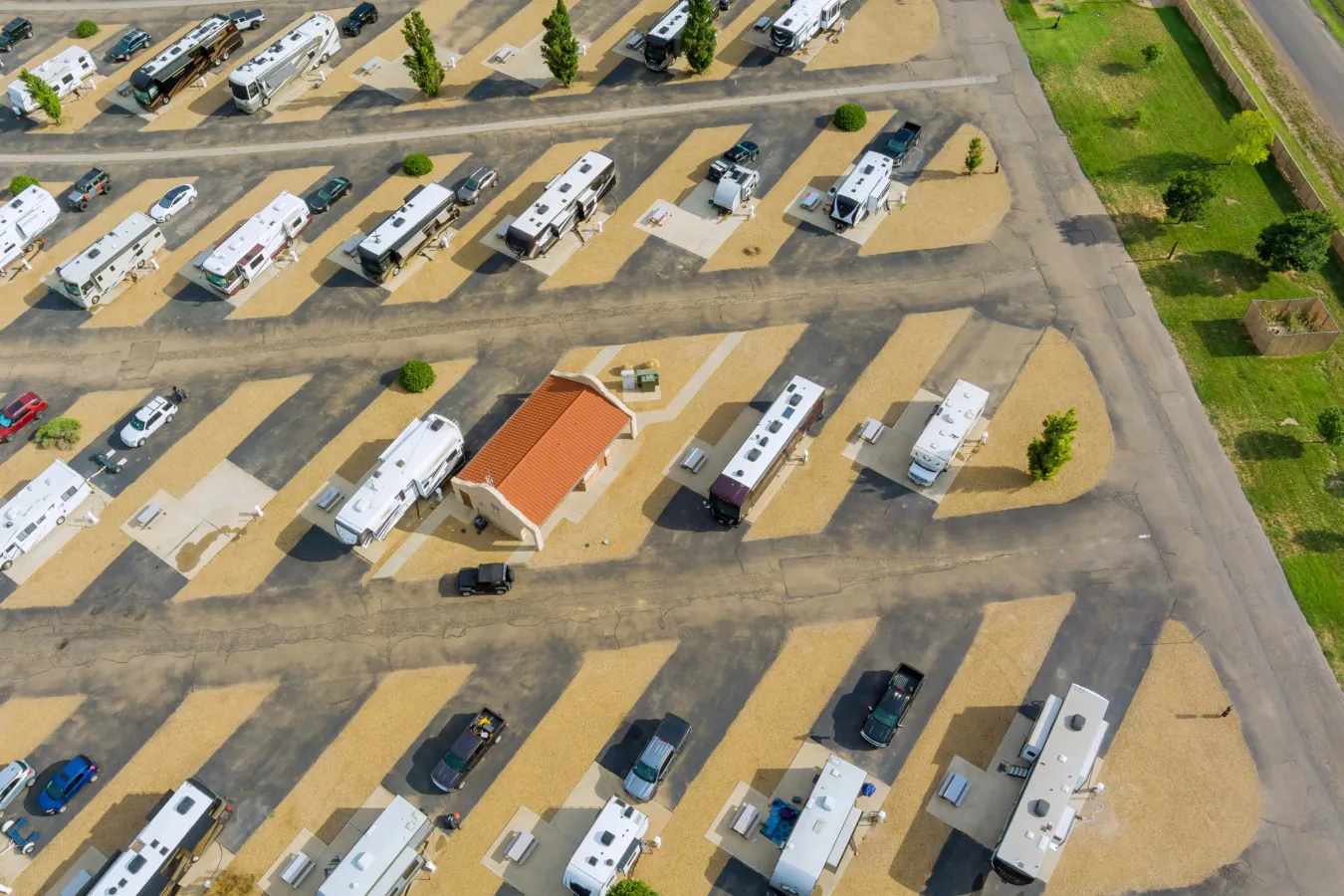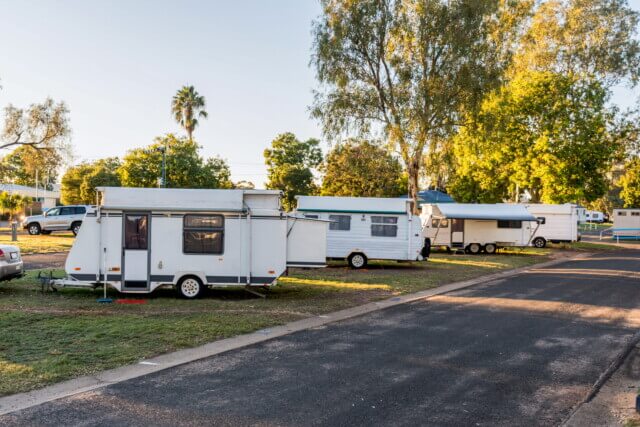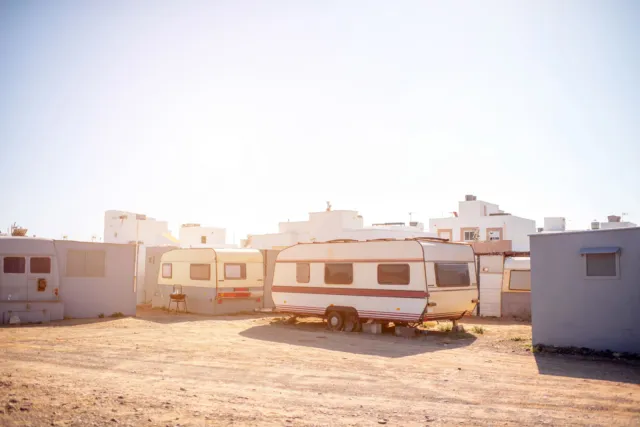Types of Buyers Interested in Texas RV Parks

RV parks have become hot property in Texas. No surprise there — with more people choosing road trips, seasonal stays, or even full-time RV living, demand for places to park and hook up is climbing.
But here’s the question that keeps coming up: who buys RV parks in Texas? If you own one and are thinking of selling, or you’re just curious about the market, knowing who’s out there shopping can help you plan your next move.
So let’s dig in.
Why RV Parks Are in Demand
Before we talk about who buys RV parks, it’s worth asking: why are they so attractive in the first place?
- Steady demand – Texas has warm weather, open space, and highways everywhere. Perfect for RVers.
- Growing lifestyle trend – More retirees, families, and remote workers are choosing RV life.
- Income potential – Parks bring recurring revenue through nightly, weekly, or long-term stays.
- Extra income streams – Some parks add laundry, storage, or even little stores for extra cash.
In other words, RV parks aren’t just land — they’re businesses. And that’s what makes them appealing to different types of buyers.
1. Private Investors
First on the list of who buys RV parks in Texas are private investors. These are individuals or small groups looking for steady income.
They often want:
- Smaller to mid-sized parks
- Parks in areas with consistent tourist traffic
- Simple operations they can manage themselves or with a small team
Private buyers like that RV parks can be hands-on. Some are even RV enthusiasts who decide to turn their hobby into a business.
2. Institutional Investors
This is the “big money” group. Large investment firms or funds sometimes scoop up RV parks because they see them as part of a bigger portfolio.
Why? Well, RV parks can offer:
- Consistent cash flow
- High occupancy in certain areas
- Lower risk compared to some other commercial properties
That said, institutional buyers usually look for bigger parks, often with more than 100 spaces, modern amenities, and good locations near major highways or attractions.
3. Hospitality Groups
Another chunk of who buys RV parks are hospitality companies. These are the same folks who might own hotels, resorts, or campgrounds.
For them, an RV park is just another way to serve travelers. They often look for:
- Parks that can be upgraded or expanded
- Properties near tourist destinations
- Places where they can add glamping sites, cabins, or high-end amenities
Hospitality groups think in terms of branding and guest experience. They may want to turn your RV park into something bigger, fancier, or more profitable.
4. Family-Owned Businesses
Sometimes the buyer isn’t a big investor or company — it’s just a family who wants to run the park themselves.
These buyers often:
- Live on-site or nearby
- Value parks that already have steady tenants
- Are drawn to manageable properties with 20–50 spaces
They’re usually in it for the lifestyle as much as the income. It’s not unusual for family buyers to see running an RV park as semi-retirement or a change of pace.
5. Expansion-Minded RV Park Owners
One of the most common groups in who buys RV parks in Texas is… other RV park owners.
If someone already owns a successful park, they may be looking to expand. Buying a second (or third) property can:
- Spread out risk
- Increase income
- Create regional brand recognition
This type of buyer already knows the ropes, which often makes the sale smoother.
What Buyers Are Really Looking For
No matter who the buyer is, most are looking at the same key factors:
- Location – Near highways, lakes, or popular destinations.
- Occupancy rates – How full the park stays year-round.
- Revenue history – Buyers love to see consistent income.
- Growth potential – Room to add more spaces, hookups, or amenities.
If your park checks these boxes, you’re in a stronger position to attract the right buyer.
How to Attract Serious Buyer
Here’s the thing: even if there are plenty of folks buying RV parks, not every buyer will be right for your property. To get the best deal, you’ll want to:
- Organize financial records – Have clean income and expense statements.
- Show off tenant stability – Long-term or repeat guests are a plus.
- Highlight amenities – Wi-Fi, laundry, paved sites — all these help.
- Work with specialists – A broker who understands RV parks can help you target the right audience.
If you’re thinking about selling, you can also check out this page on selling RV parks. It’s packed with resources for owners who want to make sure they get a fair deal and connect with serious buyers.
Common Misstakes Sellers Make
Not to nitpick, but there are a few common pitfalls that trip people up:
- Overpricing based on emotion, not numbers
- Letting maintenance slide before listing
- Not telling a “story” about the park’s potential
- Failing to market to the right buyer pool
Avoid those, and you’ll already be ahead of many sellers.
The Texas Advantage
One last point: Texas is a prime spot for RV parks because of its geography and culture. Buyers know it too. Wide-open land, a big traveling population, and relatively low property taxes in some counties all make RV parks here extra appealing.
So if you’re wondering who buys RV parks in Texas, remember — you’ve got a seller’s advantage if your property is well-run and positioned in the right area.
Final Thoughts
RV parks aren’t like selling a house or even a typical commercial building. They’re living, breathing businesses that appeal to different types of buyers for different reasons.
From private investors to big hospitality groups, there’s no single answer to who buys RV parks. The good news? There’s demand, and if you prepare properly, you can land a buyer that sees the value in what you’ve built.
If selling is on your radar, take time to get your books in order, highlight what makes your park special, and connect with the right kind of buyers. And don’t forget — resources like Commercial Real Estate Star can help you along the way.
FAQ
Buyers range from private investors and families to institutional funds and hospitality companies.
No, but the cleaner your financials, the more confident buyers will feel.
Yes. Demand is steady thanks to tourism, retirees, and full-time RVers.
It depends. Big investors want large parks, while families or small investors may prefer smaller ones.
Absolutely. In fact, many buyers see that as a positive since it means immediate income




